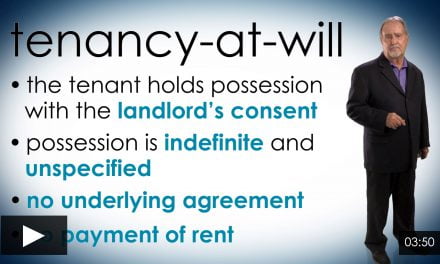Why this matters: The DRE’s Real Estate Bulletin keeps licensees informed on new codes and regulations significant to real estate practice, common violations of real estate rules of conduct, and real estate education opportunities.
Welcome back! The Summer 2024 edition of the California Department of Real Estate (DRE) Real Estate Bulletin brings licensees into:
- the broker-fee world of the now mandated use of buyer-broker representation agreements;
- the three most common trust fund violations; and
- the three DRE endowment funds supporting real estate education at public colleges and universities.
Buyer representation agreements, the new norm
DRE Commissioner Chika Sunquist recognized the mandated buyer-broker representation agreements as a top transition for licensees in property sales and leasing with the recent enactment of California Civil Code §1670.50, effective January 1, 2025, by the passage of Assembly Bill (AB) 2992.
Civil Code §1670.50 requires buyers agents to enter into a written buyer-broker representation agreement with their buyer clients. The writing is prepared by the buyers agent and signed by the buyer as soon as practicable (ASAP) on agreeing to assist a buyer to acquire any type of property. The representation agreement is never to be entered into later than the buyer’s signing of an offer to purchase real estate. [See RPI Form 103.1 and 103.2]
The written representation agreement includes:
- the buyers broker’s amount of compensation;
- services to be rendered by the buyers broker and their agent;
- when the compensation is due to be paid as earned; and
- the date the representation expires, a period within three months from the date the agreement is entered into.
The DRE enforces Civil Code §1670.50 treating a licensee’s failure to comply as a violation of licensing law. Further, the DRE ensures licensees are properly educated and trained by their employing broker to comply with the mandated use of the buyer’s representation agreement code.
Related article:
Buyer-Broker Representation Agreements: The end of the “gold standard”
Common trust fund violations DRE found
For the fiscal year July 1, 2023 through June 30, 2024, the DRE completed 361 audits. Of these:
- 57% found recordkeeping violations;
- 32% found trust account shortages; and
- trust account shortages totaled $3.5 million across 115 licensed brokers.
According to the DRE, the three most common issues DRE auditors encounter are:
- trust fund recordkeeping.
- trust account reconciliation.
- trust fund shortage.
Let’s review these common trust fund violations so your brokerage office doesn’t become a statistic on an audit, and worse.
Trust fund recordkeeping
Records the broker maintains for their trust accounts document and track the broker’s receipt and disbursement of trust funds. Brokers must maintain adequate and accurate records of trust funds they or their agents receive. Further, employing brokers need to retain records of their agent’s and broker associate’s activities undertaken on behalf of a client for three years. Of course, the broker makes the records available to the DRE upon inquiry.
To assure all trust funds are correctly deposited, credited and disbursed, the broker maintains a written journal or digital accounting system.
Banks and other depositories send a monthly statement of the account to each account holder (read: broker as trustee). The purpose of the statement is for the broker to verify the validity of the deposits, withdrawals and charges. The broker needs to personally receive and review bank statements before anyone else to protect the trust funds from unauthorized withdrawals.
Related video:
Trust fund reconciliation
As a minimum, brokers perform a trust account reconciliation for any month they had trust account activity. The sum of the separate transaction activity for each month is compared to the ending balance on the broker’s records for the prior month of activity to determine whether the trust account is in balance. [DRE Regulations §2831.2]
The broker also maintains a record of their trust account reconciliation including the:
- name of the bank account and account number;
- date of the reconciliation;
- name or account number of each principal, beneficiary or transaction; and
- broker’s trust fund liabilities to each principal, beneficiary or transaction. [DRE Regs. §2831.2]
Trust fund shortage
A trust fund shortage is considered by the DRE as a serious violation of real estate licensing law. A shortage means the broker improperly commingled funds and used client funds as their own. Or a conversion of client funds occurred as the unlawful appropriation of another’s property for personal use.
At the very least, a shortage of funds in the trust account amounts to broker negligence as the trust account does not balance. Some brokers with trust fund shortages face license suspension or revocation.
The DRE recommends the following activities to protect against trust fund shortages:
- perform the required monthly reconciliation;
- establish procedures for the collection, deposit and disbursement of trust funds;
- separate the job duties for the individual who collects and deposits trust funds from the individual who is authorized to make disbursements;
- have a policy where all trust account disbursements over a set dollar amount require approval by either the broker or a designated supervisor;
- establish written policies to prevent trust fund disbursements when insufficient balances exist in a client’s account; and
- have different staff review the monthly reconciliation or spot check the trust account.
Related article:
Real estate endowments
The DRE maintains three endowment funds to support the continued advancement of real estate education in California.
The three endowments are managed by different California higher education systems, including:
- the University of California (UC);
- California State University (CSU); and
- the California Community Colleges.
UC endowment
The UC endowment, the California Real Estate Endowment Fund (REEF) was formed in 1973. In November 2023, a renewed agreement for REEF was signed. The new agreement focuses on:
- supporting research and education on California real estate matters;
- advancing Diversity, Equity and Inclusion (DEI) within the real estate industry;
- improving the quality of education for real estate students; and
- providing financial assistance via scholarships and paid internships.
CSU endowment
The CSU endowment, the CSU Real Estate & Land Use Institute (RELUI), was established in 1974 with a grant from the DRE. It promotes education and professionalism in the industry, funds program improvements, and supports students with scholarships pursuing real estate careers.
Every year, RELUI awards almost $50,000 in student scholarships and more than $25,000 in program grants.
California Community Colleges endowment
The California Community Colleges Real Estate Education Endowment was established in 1975 and supports:
- grants that provide projects that promote, enhance or advance the proficiency of real estate practitioners through real estate courses provided by California community colleges; and
- maintenance and support of a scholarship program for students enrolled in real estate career-oriented programs.
$60,000 in scholarships are available to eligible public school students this year.
Educating the next generation
Though brick-and-mortar schools have their place in education, it is small in scale compared to online correspondence schools. Online private schools provide the lion’s share of education for current and future California licensees.
Correspondence schools are privately owned, and their students do not receive DRE endowments. Educators like firsttuesday are 100% funded through student enrollments, not DRE licensing fees.
Though we do not receive grants, we continue to aggressively innovate and push the envelope of what an education looks like, giving today’s generation of agents and brokers a heads up.
We give back to our students in the form of enhanced materials — video, audio, video games, interactive media — so the next time a student renews their education with us, they are given something fresh and new that improves their experience, comprehension and behavior.
The future is digital. We blazed that trail by being digital from the early 1980s — though the internet, personal computers and cell phones were then rarely in use — and today through video streaming. Printed material has mostly disappeared via the rear-view mirror.
Related article:
Your next renewal just got more entertaining — and informational














